George Mason, a distinguished yet sometimes underappreciated Founding Father, played a crucial role in shaping the fundamental values of the United States. As a respected Virginia landowner with a sharp legal acumen, he penned the Virginia Declaration of Rights, laying the groundwork for the U.S. Bill of Rights. Mason, a staunch advocate for individual freedoms, stood firm against the Constitution until it explicitly included protections for civil liberties. His unwavering commitment to these principles, even when it meant opposing figures like George Washington, underscores his dedication to justice and the American way of life. Learn how Mason's influential legacy continues to fortify the pillars of American liberty and individual rights today.
Highlights
- George Mason was a pivotal figure in American history, authoring the Virginia Declaration of Rights, which played a crucial role in shaping the U.S. Bill of Rights and underscoring the importance of civil liberties.
- With a strong belief in limited government, Mason opposed signing the Constitution without explicit protections for individual rights, fearing federal overreach.
- As a Virginia landowner, Mason's firsthand experience with the economic and social dynamics of Colonial America informed his commitment to property rights and personal freedoms.
- A staunch advocate for civil liberties and public duty, he opposed oppressive British policies and was a vocal proponent of colonial rights.
- Mason's deep commitment to natural rights and individual freedom significantly influenced the core values of the United States, leading to the adoption of the Bill of Rights and ensuring the protection of personal liberties.
Plantation Life and Legal Mind
George Mason's life as a landowner in Colonial Virginia gave him a deep understanding of the economic and social dynamics of his era.
His self-directed education in law and philosophy provided him with the intellectual foundation to make significant contributions to the American political system.
Although his plantation offered opportunities for personal prosperity, Mason prioritized his patriotic duty, fiercely advocating for colonial rights and helping to establish the principles of civil liberties that are foundational to American democracy.
Landowner in Colonial Virginia
In colonial Virginia, the life of a plantation owner like George Mason exemplified the virtues of hard work and self-reliance. As the master of Gunston Hall, Mason managed a prosperous estate that showcased American ingenuity through its cultivation of diversified crops such as wheat and even ventures into winemaking.
Inheriting this large estate and its labor force at the young age of 21, Mason was a beneficiary of the agricultural productivity that was essential to the prosperity of the colony. Despite the complexities of his time, he was known for his personal opposition to the institution of slavery.
Gunston Hall stood not only as an economic stronghold but also as a testament to Mason's legal expertise. His drafting of the Virginia Declaration of Rights was a profound contribution to the principles of fundamental human rights and self-governance that would later shape the American founding.
Mason's active participation in local governance, including his service in the Virginia House of Delegates, highlighted his significant role in shaping colonial legal and political frameworks, reflecting the values of liberty and responsible governance.
Self-Educated in Law and Philosophy
As a man committed to traditional responsibilities, the demands of managing Gunston Hall endowed George Mason with a unique understanding of the connection between landownership and effective governance.
His self-education began in 1736, drawing heavily from his uncle's comprehensive library. This independent study enriched his grasp of law and philosophy, influencing his beliefs on political theory and governance with a focus on individual liberties and limited government.
Mason's practical experiences as a plantation owner reinforced his dedication to property rights and personal freedoms. These principles were eloquently expressed in the Virginia Declaration of Rights, underscoring fundamental rights and the government's duty to protect them.
While reliant on enslaved labor, Mason's complex stance on slavery and advocacy for gradual emancipation showcased his nuanced approach to balancing individual freedoms with traditional values.
Commitment to Public Duty Over Personal Gain
Amid the expansive and historically rich fields of Gunston Hall, the embodiment of George Mason's dedication to public duty and American principles came to life through his steadfast actions and beliefs.
As a plantation owner, Mason skillfully managed agricultural endeavors while upholding a strong sense of civic responsibility, notably contributing to the early development of the Virginia wine industry.
Elected to Virginia’s House of Burgesses in 1759, he was a staunch advocate for the rights of local planters and took a firm stand against oppressive British policies, showcasing his unwavering commitment to community welfare and American independence.
His legal acumen was evident in his authorship of the Virginia Declaration of Rights, a foundational document that championed individual liberties and significantly influenced the United States Constitution.
Despite his considerable land holdings and the prevailing reliance on slavery of the time, Mason courageously advocated for gradual emancipation, demonstrating a commitment to moral integrity and public duty that transcended personal economic interests.
He truly embodied the spirit of a principled American statesman.
Virginia Declaration of Rights
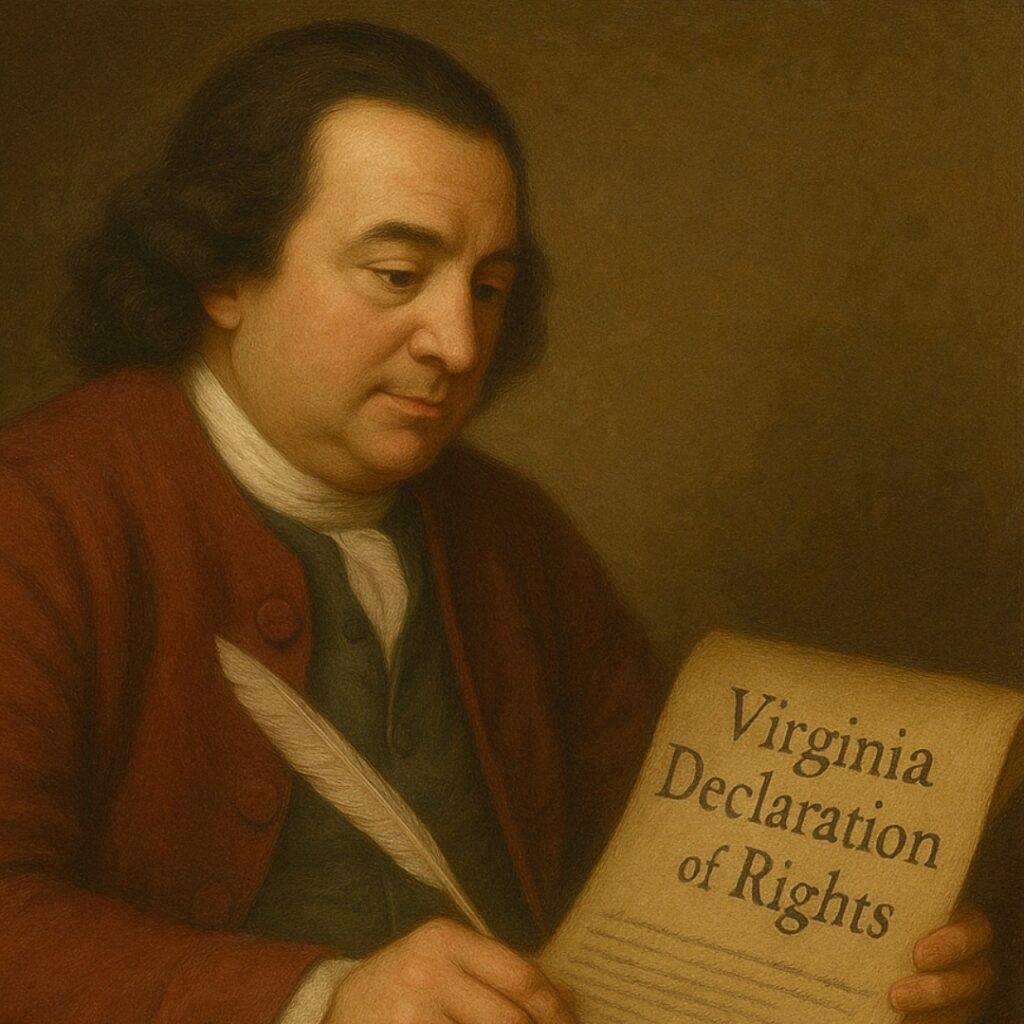
The Virginia Declaration of Rights, crafted by the insightful George Mason, laid the groundwork for American liberty by clearly defining essential rights and opposing the overreach of monarchical power.
This pivotal document not only played a crucial role in shaping the U.S. Bill of Rights but also deeply influenced patriotic leaders like Thomas Jefferson and James Madison, who incorporated its principles into their own significant contributions to American governance.
A Blueprint for American Liberty
Forged in the spirit of American patriotism, the Virginia Declaration of Rights emerged in 1776 as a cornerstone document that clearly outlined the fundamental freedoms and responsibilities inherent to citizenship.
Authored by the esteemed George Mason, it stands as the first modern bill of rights, affirming individual liberties as central to a just government. Arriving three weeks before the Declaration of Independence, it underscored the God-given rights such as life, liberty, and the pursuit of happiness.
Mason's declaration asserted that government authority is derived from the consent of the governed, affirming the people's right to modify or dismantle ineffective governments.
This document significantly influenced the U.S. Bill of Rights, serving as a beacon of liberty and inspiring global declarations, including the French Declaration of the Rights of Man and Citizen.
It enshrined principles such as trial by jury, freedom of the press, and the separation of powers into the fabric of constitutional governance, reflecting the enduring values of American freedom.
Rejecting Monarchical Power
In the pivotal year of 1776, as the American colonies embarked on their quest for self-governance, the Virginia Declaration of Rights stands as a testament to the rejection of oppressive monarchical power.
Crafted by the esteemed George Mason, this foundational document affirmed that government should be rooted in the consent of its citizens, challenging the outdated notion of absolute rule.
Mason's declaration, adopted a mere three weeks prior to the national Declaration of Independence, laid out essential principles such as the inherent rights to life, liberty, and property.
It highlighted the government's responsibility to safeguard these rights and affirmed the people's right to reform or replace ineffective leadership.
The emphasis on freedoms like the press and fair trial marked a significant shift from monarchic control to democratic principles, paving the way for the enduring values that define American conservatism and patriotism.
Influence on Jefferson and Madison
George Mason's Virginia Declaration of Rights played a crucial role in shaping the foundational principles embraced by Thomas Jefferson and James Madison, both champions of American freedom. Adopted in 1776, Mason's declaration was instrumental in establishing the importance of individual liberties, directly influencing Jefferson's penning of the Declaration of Independence.
His articulation of inherent rights to life, liberty, and property became cornerstones in the American tradition of personal freedom and limited government, resonating strongly within the U.S. Bill of Rights. Mason's arguments for popular sovereignty and the government's duty to protect citizens' rights were visionary, inspiring other states to craft constitutions that prioritized these principles.
Though initially hesitant about a Bill of Rights, Madison came to appreciate Mason's persuasive advocacy, leading to the incorporation of these vital protections into the Constitution. Mason's steadfast commitment to safeguarding freedoms underscores the importance of vigilance against government overreach, a value cherished by conservatives who prioritize individual rights and American greatness.
Influence on the U.S. Bill of Rights
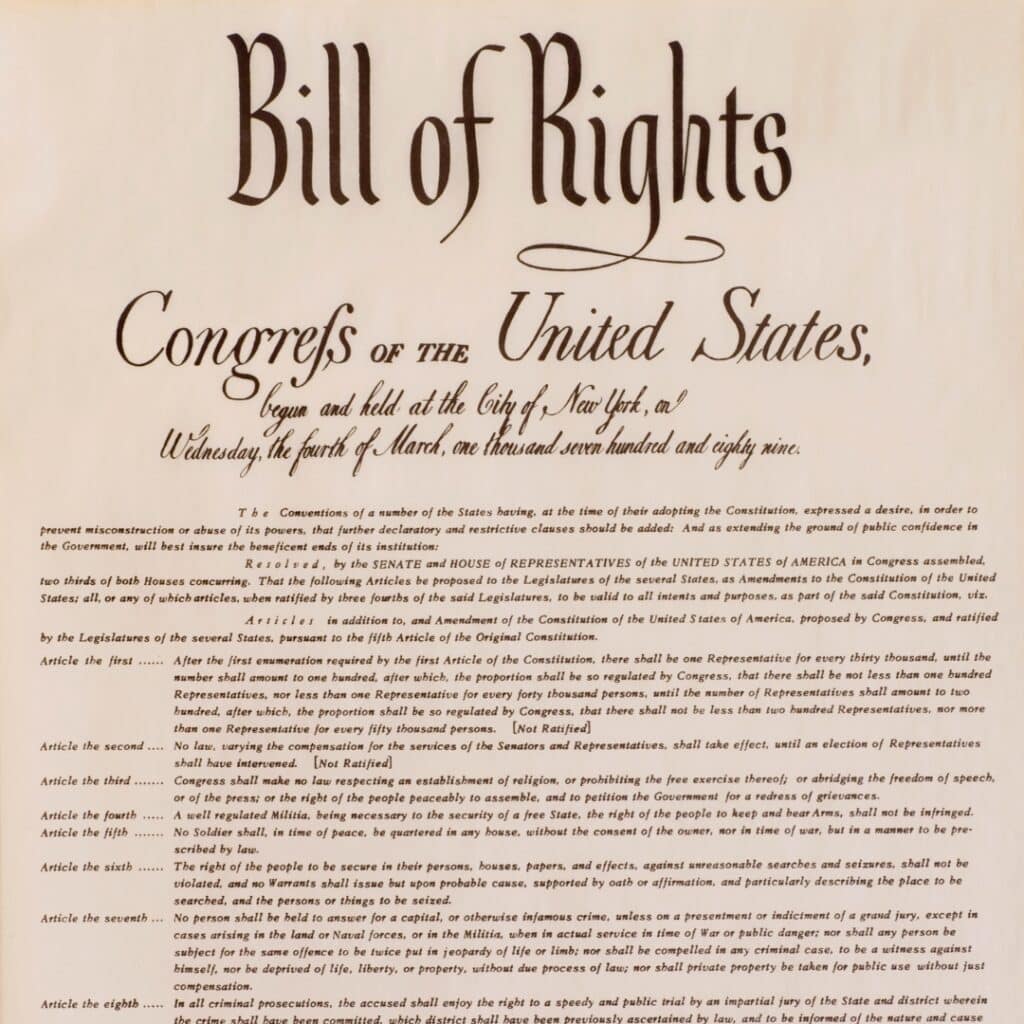
George Mason's unwavering commitment to safeguarding natural rights played a crucial role in the formation of the U.S. Bill of Rights.
The language he crafted in the Virginia Declaration of Rights was foundational to the first ten amendments, which underscore personal liberties and hold the government accountable.
His foresight during the Constitutional debates underscored the importance of explicit protections, a vision that was vital in the adoption of these essential amendments, reinforcing the principles that make America exceptional.
Insisting on Protections for Natural Rights
George Mason, a stalwart advocate for the protection of natural rights, significantly influenced the foundation of the United States. His instrumental role in drafting the Virginia Declaration of Rights in 1776 was crucial, establishing the essential principles of life, liberty, and property that are the bedrock of American values.
Mason's vision was clear: government power should be a reflection of the people's will, emphasizing the conservative belief in limited government and individual freedoms. At the 1787 Constitutional Convention, Mason's push for a Bill of Rights was driven by a rightful concern over potential governmental overreach and the need for explicit protections of individual liberties.
This steadfast commitment to safeguarding personal freedoms profoundly impacted James Madison, ultimately leading to the creation of the federal Bill of Rights in 1789. Mason’s foresight not only fortified the American constitutional framework but also served as a beacon for global human rights standards, reinforcing the exceptional role of the United States in championing liberty and justice.
Language That Shaped the First Ten Amendments
George Mason's crucial role in shaping the U.S. Bill of Rights is an often-underappreciated testament to the founding principles of American liberty.
As the chief architect of the Virginia Declaration of Rights in 1776, Mason's articulation of essential freedoms laid the groundwork for American governance, emphasizing the importance of individual rights and limited government.
His steadfast demand for a bill of rights during the Constitutional Convention was critical, ensuring that explicit protections for personal liberties were enshrined in our founding documents.
The language of the Virginia Declaration, particularly the assertion that "all men are by nature equally free and independent," directly influenced several key amendments.
The principles of personal rights and governmental accountability found in this document reverberated throughout the crafting of the first ten amendments.
Mason’s dedication to these ideals significantly shaped the robust protections for freedom of speech and religion that we cherish in the U.S. Bill of Rights today.
Unyielding Defense of Personal Freedom
George Mason, though not as widely celebrated as some other Founding Fathers, played a crucial role in championing personal freedom, a cornerstone of American values.
His pivotal authorship of the Virginia Declaration of Rights in 1776 articulated fundamental civil liberties and directly influenced the creation of the U.S. Bill of Rights.
Mason's strong advocacy for the inclusion of a Bill of Rights in the Constitution was motivated by his acute awareness of the dangers of governmental overreach and his determination to safeguard individual liberties.
He emphasized essential rights such as freedom of speech, press, and religion, which later became enshrined in the First Amendment.
Mason's principled stand in refusing to sign the Constitution due to its initial omission of individual protections underscored his unwavering commitment to these conservative ideals.
His steadfast principles significantly shaped the federal Bill of Rights, adopted in 1791, reinforcing the foundational American commitment to personal freedom and limited government.
His Warnings Realized in Constitutional Debate
George Mason's unwavering dedication to personal freedom naturally extended into a broader concern for the potential overreach of centralized government power, a concern that became crucial during the debates surrounding the U.S. Constitution.
Refusing to sign the Constitution in 1787, Mason criticized its lack of a Bill of Rights, emphasizing the need to safeguard against government tyranny and unchecked power—principles that align with the conservative value of limited government.
His earlier work on the Virginia Declaration of Rights underscored his commitment to individual liberties and states' rights, deeply influencing his stance.
Mason's critiques, including his forward-thinking concerns about slavery, resonated with fellow framers, prompting James Madison to introduce amendments in 1789.
These amendments, culminating in the U.S. Bill of Rights adopted in 1791, validated Mason’s concerns and advocacy, ensuring the protection of personal freedoms and reinforcing the founding American principles of liberty and justice for the fledgling nation.
Opposition to the Constitution
George Mason's decision not to sign the Constitution at the Philadelphia Convention was driven by his commitment to safeguarding individual liberties through the inclusion of a Bill of Rights.
He understood that without these explicit protections, the new federal government might overstep its bounds and infringe upon the freedoms cherished by Americans.
As a dedicated proponent of civil liberties, Mason's stance underscored the importance of balancing federal authority with personal freedoms, ultimately paving the way for the essential constitutional amendments that reinforce American values.
Refusal to Sign Without a Bill of Rights
At the Constitutional Convention in 1787, George Mason exemplified true American patriotism by standing resolutely for the inclusion of a Bill of Rights in the proposed Constitution. He recognized that such a safeguard was not merely a formality but a fundamental necessity to protect the God-given freedoms of every individual.
Mason's refusal to sign the Constitution without these protections underscored his commitment to ensuring that personal liberties, such as speech, assembly, and religion, were enshrined in the nation's founding document. His principled stand, even in the face of disagreement with prominent figures like George Washington, demonstrated his dedication to the core values of freedom and individual rights.
Despite the personal sacrifice, Mason's steadfast advocacy was instrumental in paving the way for the adoption of the Federal Bill of Rights in 1791, solidifying his role as a key architect in safeguarding American civil liberties and reinforcing the nation's commitment to protecting its citizens' freedoms.
Fears of an Overpowering Central Government
The Constitutional Convention of 1787 was a crucial moment in shaping the United States, yet it also highlighted significant concerns among some of the Founding Fathers.
George Mason, a strong advocate for individual liberties and states' rights, chose not to support the Constitution as it was initially proposed. He was cautious about the potential for an overly powerful central government, emphasizing the need for a Bill of Rights to protect citizens from possible government overreach and preserve personal freedoms.
Mason believed that maintaining state sovereignty was vital for ensuring a free and prosperous society. His concerns also included the Constitution's silence on issues like the protection of individual rights and the contentious matter of slavery.
Despite the personal sacrifices, including disagreements with prominent figures such as George Washington, Mason's principled stance underscored a dedication to safeguarding the core civil liberties that are central to America's founding ideals.
A Voice of Dissent at the Philadelphia Convention
The Constitutional Convention of 1787, a pivotal moment in the establishment of the United States, was marked by the voices of patriots dedicated to ensuring the nation's future strength and prosperity. Among these voices, George Mason stood out as a principled advocate for limited government and individual freedoms.
He chose not to sign the Constitution due to concerns about the potential for centralized power to infringe upon states' rights and individual liberties. Mason was a staunch supporter of a Bill of Rights, believing it essential to safeguard the freedoms of citizens and prevent government overreach.
He also called for an immediate end to the slave trade and a supermajority requirement for navigation acts, underscoring his commitment to protecting individual rights and maintaining checks on government authority.
Although his stance caused tensions with other founding figures, including George Washington, Mason's unwavering dedication to his principles played a crucial role in the eventual adoption of the Federal Bill of Rights in 1791, solidifying his legacy as a champion of civil liberties and a defender of American values.
Advocacy for Individual Liberties
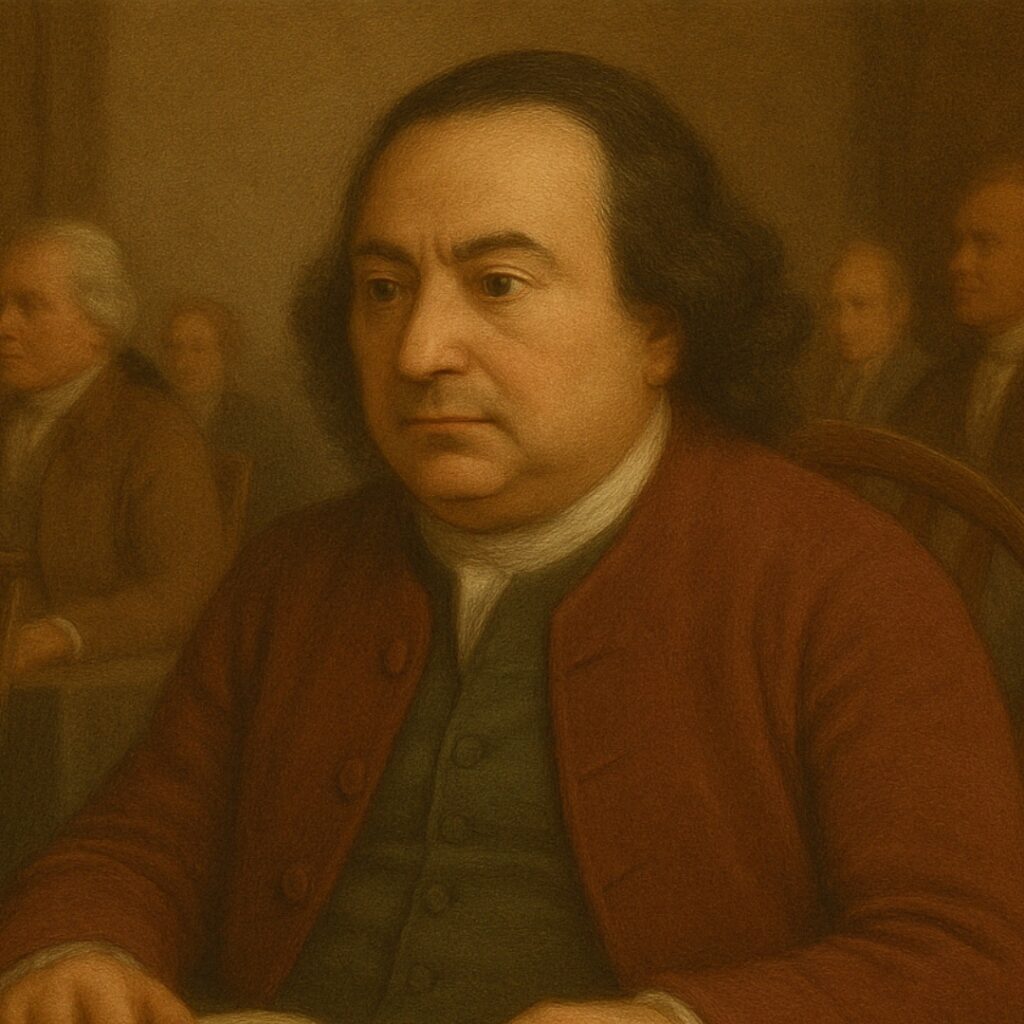
George Mason's steadfast advocacy for individual liberties was rooted in his dedication to protecting against excessive government power and ensuring that authority remained firmly in the hands of the people.
His unwavering support for religious freedom and property rights highlighted his commitment to shielding citizens from unwarranted interference.
Mason's belief in inalienable rights, as expressed in the Virginia Declaration of Rights, laid the groundwork for future legal systems that prioritized personal freedoms and demanded government accountability, reflecting the core values of American exceptionalism and the conservative principle of limited government.
Safeguards Against Government Overreach
George Mason's steadfast dedication to protecting individual freedoms is exemplified by his authorship of the Virginia Declaration of Rights, a seminal document crafted in 1776 that preemptively addressed the threats posed by government overreach. This document highlighted essential human rights and had a profound impact on the U.S. Bill of Rights.
At the Constitutional Convention in 1787, Mason's relentless advocacy for a Bill of Rights was driven by his concerns about the potential tyranny of a strong central government. He championed the protection of liberties such as speech, religion, and the right to a fair trial, which were later enshrined in the federal Bill of Rights ratified in 1791.
Mason believed that a government's legitimacy stemmed from the consent of the governed and supported the right of citizens to modify or dismantle oppressive governance. His contributions laid critical groundwork for the preservation of American freedoms and the protection of individual rights against government intrusion.
Religious Freedom and Property Rights
In the realm of individual liberties, George Mason's staunch advocacy for religious freedom and property rights exemplified his commitment to the fundamental principles of personal autonomy and limited government.
Through the Virginia Declaration of Rights, adopted in 1776, Mason highlighted the God-given rights to life, liberty, and property, thereby establishing a vital cornerstone for American law and values. His assertion that freedom of religion is a divine right, beyond the reach of government control, resonated through subsequent declarations of rights, ensuring that faith remains a personal and unassailable domain.
Furthermore, Mason's influential writings championed the belief that the government's primary role is to safeguard individual rights, including property rights, which are indispensable for personal freedom, economic prosperity, and national strength.
His unwavering insistence on a Bill of Rights during the Constitutional Convention underscored his dedication to protecting citizens from government overreach, reinforcing the conservative principle of limited government intervention.
Belief in Inalienable Rights
The principle of inalienable rights is a fundamental tenet of American political philosophy, underscoring the nation's commitment to individual liberties as envisioned by the Founding Fathers.
In 1776, George Mason played a pivotal role in shaping this vision by authoring the Virginia Declaration of Rights, which articulated the inherent human rights to life, liberty, property, and the pursuit of happiness. This groundbreaking document affirmed the belief that government derives its authority from the consent of the governed, granting citizens the power to reform or abolish ineffective governments.
Mason's profound influence is evident in the foundational texts of American democracy, including Thomas Jefferson’s Declaration of Independence and the U.S. Bill of Rights.
Although initially opposing the Constitution due to its lack of a bill of rights, Mason's unwavering dedication to safeguarding individual freedoms ultimately contributed to the adoption of the Bill of Rights in 1791, solidifying his enduring legacy as a champion of American values.
Anti-Federalist Papers and Writings
George Mason's contributions to the discussion around the Constitution were pivotal in ensuring the protection of individual liberties and maintaining a balance of power.
His "Objections to the Constitution" highlighted the importance of safeguarding states' rights and limiting federal overreach.
Mason's advocacy for a Bill of Rights was not only a defense of personal freedoms but also a reinforcement of the foundational American principles of liberty and self-governance.
His foresight and dedication to conservative values helped shape a government that respects the freedoms of its citizens.
Contributions to Anti-Federalist Thought
Standing resolute in the face of Federalist momentum, George Mason emerged as a principled voice advocating for the rights and freedoms that define American values.
His deep concerns over the proposed Constitution's lack of explicit protections for individual rights reflected a commitment to ensuring that government power is kept in check, preventing any slide toward tyranny.
Mason's unwavering insistence on a Bill of Rights was a key contribution to the preservation of personal freedoms, emphasizing that without these explicit guarantees, citizens' liberties could be at risk.
His influential speeches and writings, which became integral to the Anti-Federalist Papers, championed the necessity of safeguarding civil liberties.
Mason's steadfast advocacy was instrumental in the eventual adoption of the U.S. Bill of Rights, securing essential protections for individual freedoms and reinforcing the foundational principles of American democracy.
Written Warnings to Future Americans
In his unwavering dedication to protecting individual liberties, Mason's written exhortations served as a guiding light for future generations vigilant against the dangers of unchecked governmental power.
As a prominent Anti-Federalist, he expressed deep concerns about the potential for tyranny within the new Constitution, passionately advocating for a Bill of Rights. Mason's writings emphasized the crucial need for explicit protections for freedoms such as speech, religion, and assembly to maintain a limited government.
His critique focused on the Constitution's concentration of power, which he believed could mirror the oppression faced under British rule. Furthermore, Mason's denunciation of the slave trade underscored his commitment to the fundamental American principles of human rights and individual dignity.
His advocacy played a key role in the eventual adoption of the first ten amendments, ensuring the safeguarding of individual liberties for future Americans and fortifying the foundation of American freedom.
Relationship with Washington and Madison
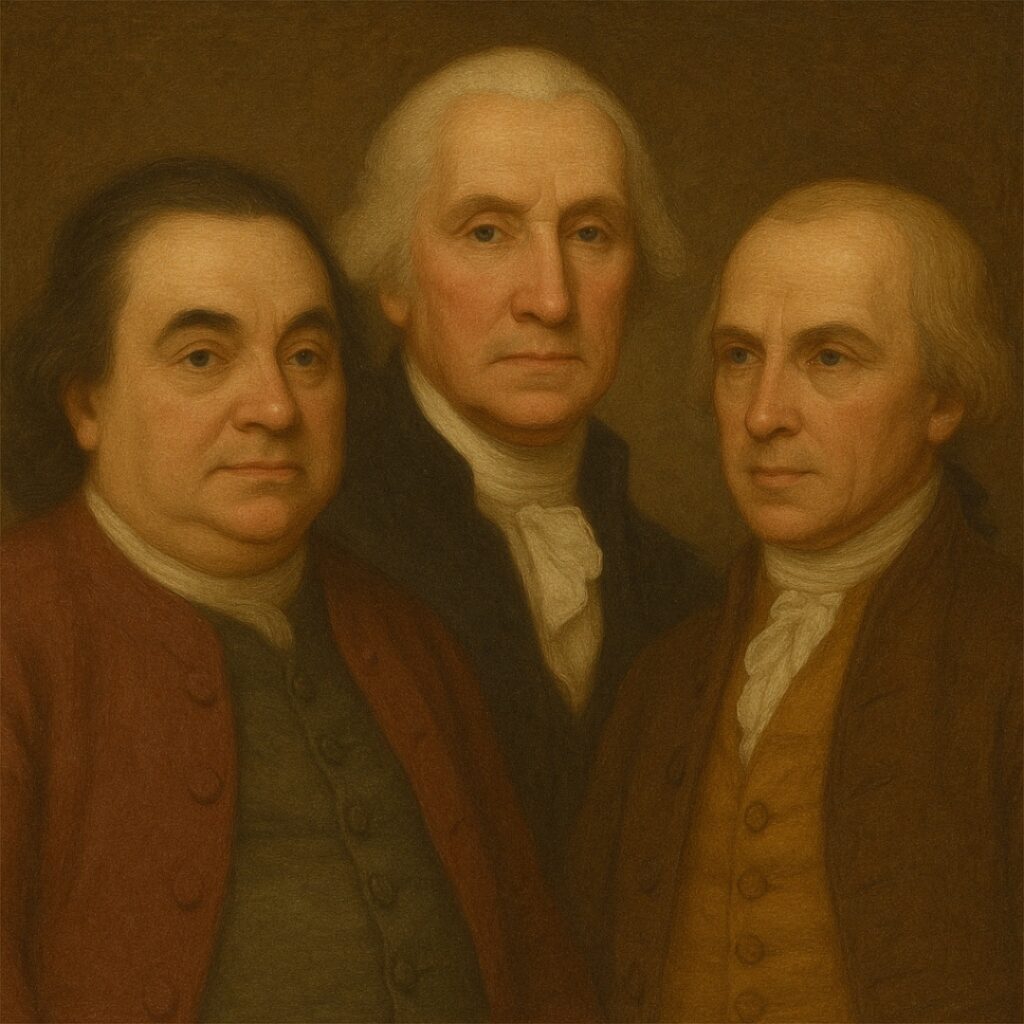
George Mason, a key figure in the founding of America, initially shared a strong alliance with George Washington.
However, their views diverged when Mason chose not to endorse the U.S. Constitution due to concerns over the balance of federal power.
Despite this difference, Washington continued to respect Mason's intellect and his significant contributions to American political thought.
In a similar vein, James Madison, a prominent architect of the Constitution, was influenced by Mason's staunch advocacy for individual rights.
Madison recognized Mason's impact by ensuring the inclusion of the Bill of Rights, reinforcing the Constitution's commitment to protecting American freedoms.
Close Ally Turned Constitutional Critic
During the transformative period of the American Revolution, George Mason stood as a pivotal figure whose interactions with leaders such as George Washington and James Madison were marked by both collaboration and principled dissent.
Initially, Mason and Washington were steadfast allies, united by their dedication to advancing Virginia's interests and the American cause. However, Mason's principled decision to withhold his signature from the U.S. Constitution stemmed from valid concerns regarding centralized power and the absence of a Bill of Rights, which he believed were crucial to safeguarding individual liberties.
This principled stance, while creating tension with Washington, underscored Mason's commitment to foundational American ideals of freedom and limited government. His advocacy for a Bill of Rights, later championed by Madison, was a testament to his foresight and dedication to protecting citizens' rights.
Although Mason's opposition to slavery and his critique of certain constitutional compromises created distance between him and Madison, it highlighted the robust and dynamic nature of early American political discourse, which ultimately strengthened the nation's foundational principles.
Shared Respect Despite Political Differences
Despite political disagreements, the mutual respect among George Mason, George Washington, and James Madison remained strong, highlighting the enduring bonds of friendship and patriotism.
Mason, a staunch advocate for individual liberties, often advised Washington on governance issues, reflecting their shared commitment to American principles. While Mason's refusal to sign the Constitution due to concerns over centralized power created tension, it underscored the importance of healthy debate within a vibrant democracy.
Washington, a visionary leader who supported the new framework, exemplified the strength of American unity even amidst differing opinions. Similarly, Madison held deep respect for Mason, recognizing his profound influence on republican ideals.
Their differing views on the necessity of a Bill of Rights sparked a crucial debate among the Founding Fathers. Mason's dedication to safeguarding civil liberties ultimately inspired Madison to introduce amendments that became the federal Bill of Rights, demonstrating how their principled disagreements fortified the foundations of American democracy.
Personal Sacrifices for Principles
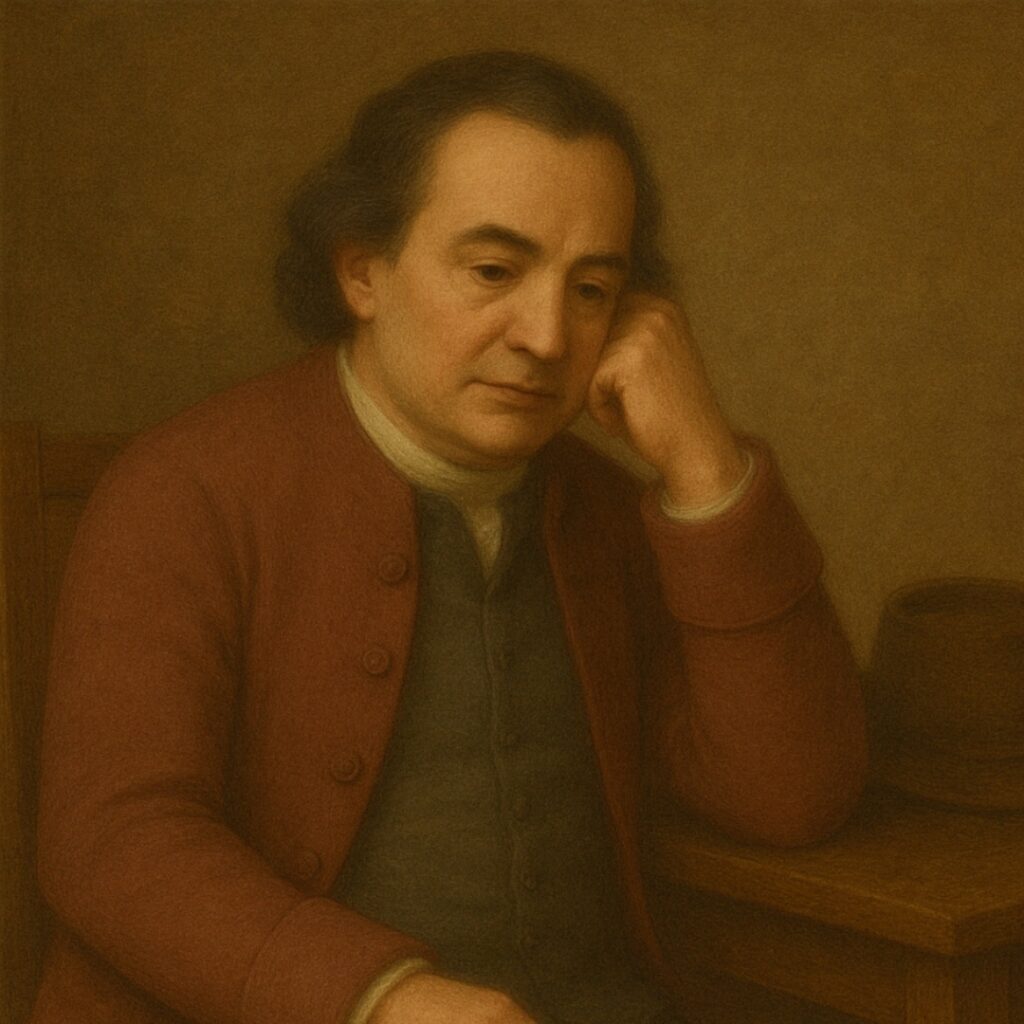
George Mason's unwavering dedication to his principles exemplified the true spirit of American conservatism, valuing individual liberties above all else.
By choosing not to sign the U.S. Constitution without a bill of rights, he demonstrated a profound commitment to safeguarding the freedoms that are the bedrock of our nation.
Despite the personal cost, including political isolation and strained relationships with influential figures like George Washington, Mason's decision highlighted his belief in limited government and the protection of personal rights.
His actions serve as a testament to the conservative values of justice and freedom, showcasing a willingness to sacrifice power and prestige for the greater good of preserving American ideals.
Rejecting Power and Prestige
Standing resolutely by his principles, the great American patriot George Mason refused to sign the U.S. Constitution at the 1787 Constitutional Convention, due to its lack of a Bill of Rights. His unwavering commitment to safeguarding individual freedoms over seeking political prestige was a testament to his true conservative values.
Despite the challenges this decision posed to his relationship with George Washington and the erosion of some friendships, Mason placed his moral beliefs above all else. He boldly criticized the Constitution's initial oversight on slavery, setting himself apart from some of his fellow founders.
Unyielding to political pressures and the risk of isolation, Mason's advocacy played a crucial role in influencing James Madison to propose the amendments that would become the cherished Bill of Rights.
Mason's steadfast refusal to compromise on fundamental liberties highlighted his unparalleled dedication to conservative principles and the enduring American values of freedom and individual rights.
Enduring Political Isolation
George Mason, a stalwart defender of American principles, made significant personal sacrifices due to his steadfast refusal to sign the U.S. Constitution. His unwavering commitment to ensuring a balance of power and the inclusion of a bill of rights demonstrated his foresight and dedication to protecting individual liberties.
Although this principled stance distanced him from some political allies, including George Washington, Mason's call for ending the slave trade and advocating for stricter navigation acts showed his commitment to moral integrity and national interests.
His persistent advocacy for civil liberties was instrumental in the eventual adoption of the Federal Bill of Rights in 1791, underscoring his vital role in shaping the American republic.
Despite facing personal and political isolation, Mason's dedication to American freedoms firmly establishes him as a pivotal, though oft-overlooked, architect of the nation's founding ideals—earning him the title "Forgotten Founder."
Mason’s Enduring Voice for Liberty
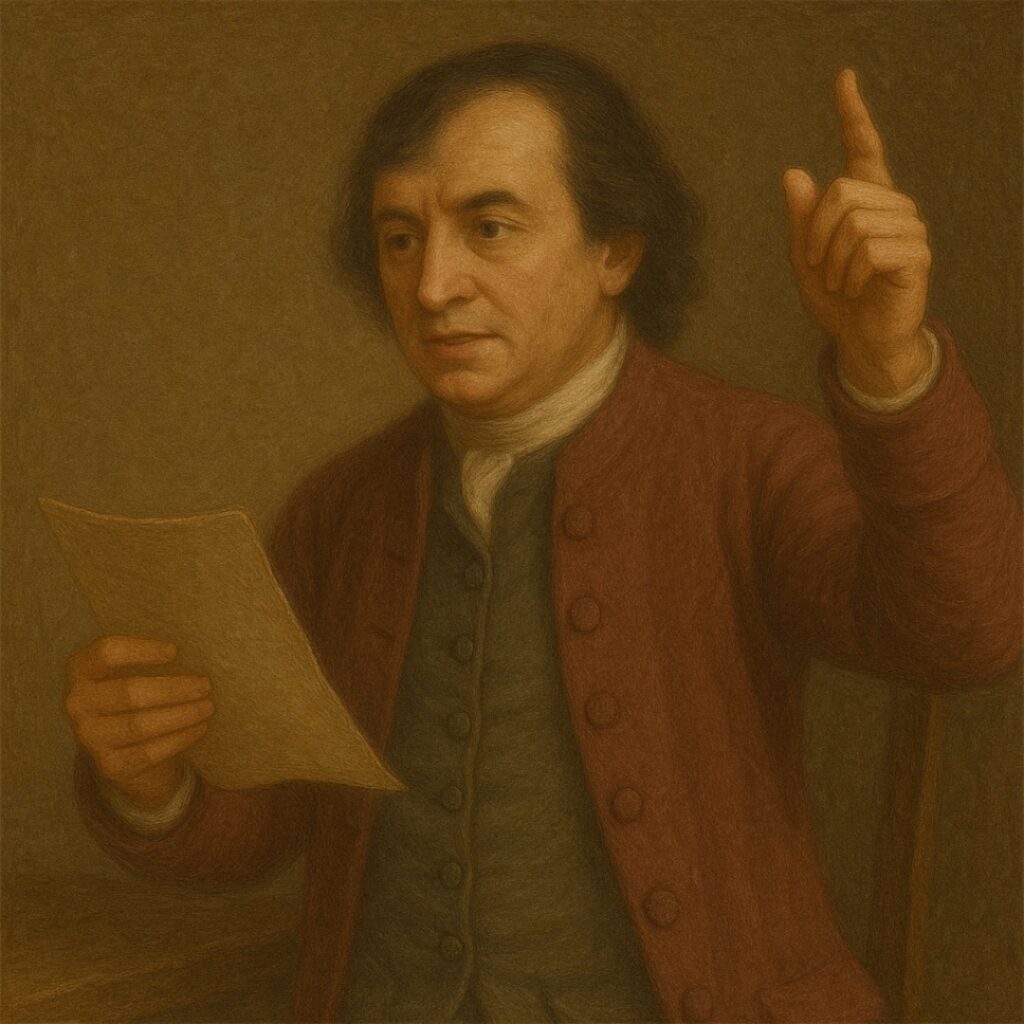
George Mason, though often overshadowed by more widely known figures, was a crucial architect of the constitutional safeguards that protect individual freedoms to this day.
As the author of the Virginia Declaration of Rights, his influence transcended state boundaries, playing a pivotal role in shaping national and even international human rights frameworks.
Mason's unwavering commitment to liberty and his visionary advocacy for a Bill of Rights have left a profound and enduring impact on the principles underpinning both state and national governance, reinforcing the American ideals of freedom and limited government.
A Founder Without Fame
George Mason, often overlooked in the shadow of his more famous peers, stands as a pivotal figure in championing American freedom and individual rights.
As a key architect of liberty, Mason's authorship of the Virginia Declaration of Rights in 1776 marked a crucial moment in the fight for personal freedoms, affirming fundamental rights like life, liberty, and property. This groundbreaking document not only set the stage for the U.S. Bill of Rights but also influenced state constitutions and international declarations, including the French Declaration of the Rights of Man and Citizen.
Despite his immense contributions to American principles, Mason chose not to sign the Constitution, driven by a steadfast belief in the necessity of explicit protections for individual rights and a cautious stance on the power of central government.
His enduring legacy as a defender of civil liberties and his principled stance against slavery continue to resonate within American political thought, highlighting the deep roots of conservative values in the nation's founding.
Forefather of Constitutional Safeguards
George Mason stands as a towering figure in the defense of American liberty and conservative values, championing the cause of constitutional safeguards that protect individual freedoms.
As the visionary author of the Virginia Declaration of Rights in 1776, Mason laid the groundwork for a system that prioritizes personal liberties and holds the government accountable, deeply influencing the U.S. Bill of Rights. His firm stance during the 1787 Constitutional Convention on the necessity of a Bill of Rights highlighted his foresight in guarding against governmental overreach.
Despite his principled decision not to sign the U.S. Constitution due to its initial lack of explicit protections for individual rights, Mason's steadfast advocacy has left an indelible mark on American governance.
His contributions not only served as an inspiration for Thomas Jefferson's Declaration of Independence but also echoed across the globe, influencing documents like the French Declaration of the Rights of Man.
Mason's legacy is a testament to the enduring importance of conservative principles in safeguarding freedom and ensuring a government that serves the people.
Legacy in State and National Rights
George Mason's legacy is deeply rooted in a firm commitment to liberty and individual freedoms, reflecting the core values of American exceptionalism.
As the principal author of the Virginia Declaration of Rights in 1776, Mason laid the groundwork for the principles that define American governance, emphasizing the importance of personal liberties. His advocacy for a Bill of Rights in the U.S. Constitution was driven by a desire to protect citizens from government overreach, ultimately leading to the adoption of the federal Bill of Rights in 1791.
Mason's vision for America included a cautious approach to issues like slavery, where he supported gradual emancipation, demonstrating a respect for the nation's founding principles.
His influence resonated beyond the United States, inspiring democratic ideals in documents like the French Declaration of the Rights of Man and Citizen, and cementing his legacy as a champion of freedom and conservative values in global rights advocacy.
Frequently Asked Questions
What Did George Mason Do as a Founding Father?
George Mason played a crucial role as a Founding Father by drafting the Virginia Declaration of Rights, which significantly influenced the development of the U.S. Bill of Rights. As a staunch advocate for individual liberties, Mason emphasized the importance of safeguarding these rights against potential government overreach. His insistence on amending the Constitution to include protections for individual freedoms reinforced the foundational principles of American democracy and ensured greater government accountability.
Why Did James Madison Disagree With George Mason?
James Madison disagreed with George Mason on the necessity of a Bill of Rights from a perspective that valued the Constitution’s robust framework. Madison, a visionary of American governance, believed that the Constitution inherently safeguarded individual liberties through its well-crafted structure, reflecting the brilliance of the Founding Fathers' design. In contrast, Mason, though a patriot, advocated for additional explicit amendments to ensure government limitations, demonstrating different approaches among great American thinkers on securing freedom and preventing government overreach.
Was George Mason for or Against Slavery?
George Mason's position on slavery was nuanced. While he recognized the issues with the slave trade and supported the idea of gradual emancipation, he also understood the economic realities of his time as a plantation owner. His views reflect the complexities faced by many of America's founding figures, who balanced their personal beliefs with the economic and social structures of their era.
What Are 5 Facts About George Mason?
George Mason, a key figure in American history, authored the Virginia Declaration of Rights, which played a significant role in shaping the U.S. Bill of Rights. As a strong advocate for individual liberties, Mason opposed slavery and took a principled stand by refusing to sign the Constitution without a bill of rights. His legacy also includes building Gunston Hall, a notable historical site in Virginia, reflecting his commitment to the American founding principles.
Conclusion
George Mason's legacy as a Founding Father is celebrated for his staunch dedication to individual liberties and his crucial role in shaping America's constitutional framework. As the author of the Virginia Declaration of Rights, Mason was instrumental in laying the foundation for the U.S. Bill of Rights, securing essential civil liberties that are cherished by Americans. Although he initially opposed the Constitution's ratification, his steadfast advocacy for human rights and willingness to make principled sacrifices highlight his enduring influence on the nation's governance and core values. His contributions are a testament to the conservative principles that continue to guide our Republic.


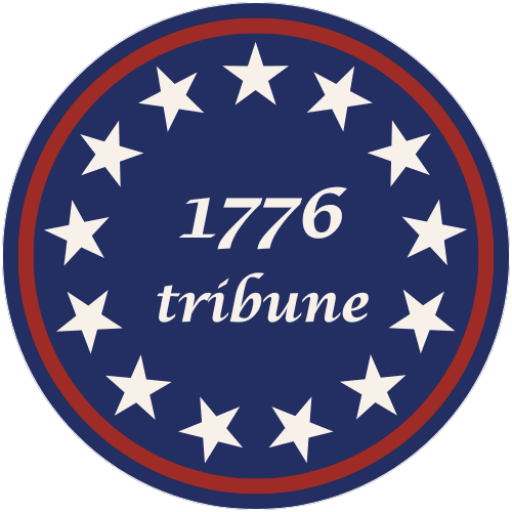
[…] Mason's Virginia Declaration of Rights significantly influenced the development of the U.S. Bill of Rights, ensuring the protection of […]
[…] like George Mason, who authored the Virginia Declaration of Rights, significantly influenced the revolutionary ideals and emphasized the need for explicit protections […]